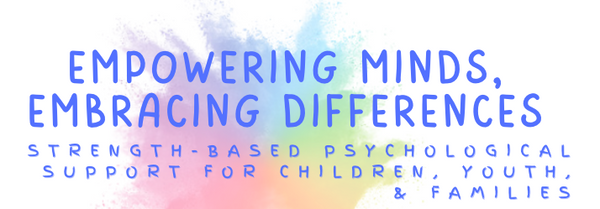How do I explain an assessment to my child?
- mindsetpsychology
- Jul 14, 2022
- 2 min read
An assessment can be a big process, but it shouldn't have to feel scary or intimidating! Talking to your child about the process will be an important step.
The age of your child, is going to help determine how and what information you decide to share. You know your child the best. Use examples that feel familiar, to take away some of the fear of the unknown.
What is a psychologist?
Many children may never have heard the word psychologist before, or have a specific idea in their mind about what a psychologist does. All in all, psychologists are people, who work with people (that sounds easy enough doesn't it?). A child psychologist is one type of psychologist, that specifically works with kids and teenagers. This person, can help us to understand more about how we think, learn, feel and act.
Here is a fun video that explains what a psychologist is:
What is an assessment? What will I have to do?
In order to help explain the process, share that an assessment isn’t a test (that you pass or fail), but a bunch of activities that you do with a psychologist. You can share that some of the activities will be fun and game like, while others might feel a bit like school work. Make sure you reinforce with your child, that they won't receive a grade, and thus won't fail - just tell them to try their best! Encourage them to try each activity, because an assessment will help understand how their brain works, and how they learn.
Older children, youth, or adults, may already be aware that something feels difficult for them. Therefore you can speak about those areas of difficulty (e.g., paying attention), and share that the process of getting an assessment will help to find more support for those areas of difficulty.
All in all, it's important to leave room for questions and concerns that your child might have. Always give them the room to ask questions (no matter how goofy), as they can be the most informative questions about how they perceive the assessment process. And yes, I will always have fun toys ;)
Examples
- Amanda may have a book with some pictures that she shows you, and asks you questions about what you see.
- You may have to focus on an activity, even when there are things happening around you that are trying to distract you.
- You can sit down with Amanda and share about your big feelings. Like when you get really scared, and don't know what to do or think. She can help think of ideas for us, so that we can help you when you feel afraid.
Key Messages
Try to make it clear that an assessment is completed to find out how your child thinks and learns.
An assessment is not a test that you pass or fail, but a bunch of different games and activities.
Leave room for questions and concerns. You can also share why (as a parent) you are hoping for an assessment.



Comments